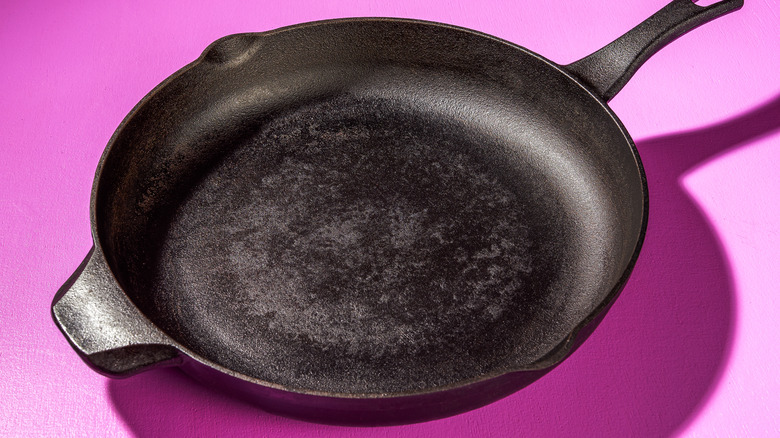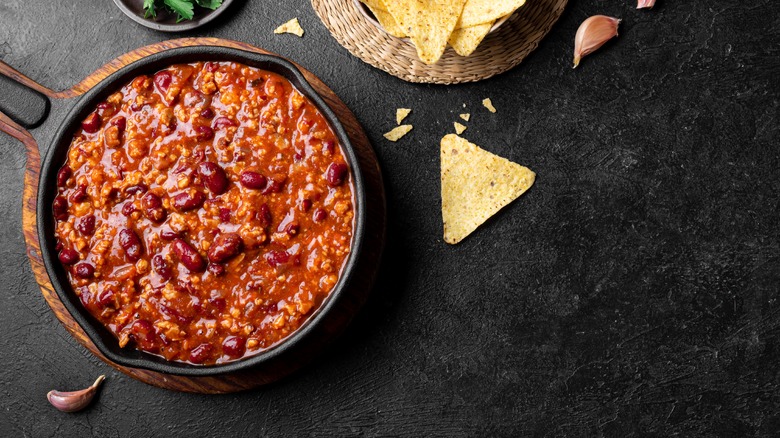Why Acidic Foods Are A No-Go For Cast Iron
We may receive a commission on purchases made from links.
Cast iron pans are some of the most resilient cookware you can invest in, provided that you maintain them properly. For instance, you have to season cast iron correctly and take care not to ruin its patina. A well-cared-for cast iron pan can last generations and easily cook everything from hearty steaks to delicate eggs, though. You've probably heard many myths about the material throughout the years, one of which is that you should never ever put anything acidic in a cast iron pan. While it is true that acidic foods like tomatoes, vinegar, citrus, and wine can damage cast iron, the full truth is a bit more nuanced.
A properly seasoned cast iron pan, meaning a pan with a good layer of polymerized oil, can be used to cook acidic foods. However, the acid can damage the pan's seasoning over time, which is why simmering acidic foods in one for an extended period of time is not encouraged. This happens because the longer you leave an acidic food inside, the more time the acid has to erode through the layer of oil.
When this happens, your food can sometimes take on a metallic taste. While not a health issue, iron definitely isn't a flavor you want in your pasta sauce. Notably, America's Test Kitchen tested cooking tomato sauce in both seasoned and unseasoned cast iron pans and found no metallic taste in either until after 30 minutes of simmering. The sauces were also sent to labs, which confirmed the presence of metal in both, with a higher concentration coming from the unseasoned skillet.
Tips for cooking acidic foods in cast iron
If you're going to cook acidic foods in a cast iron pan, such as Lodge's popular skillet, there are a few things to keep in mind so you don't ruin the pan's patina or end up with metallic-tasting food. Firstly, you'll want to ensure you're using a well-seasoned pan, though keep in mind you can over-season cast iron and cause the surface to start flaking. If you regularly use your skillet, you should have a good layer of oil built up. However, if foods like eggs have started sticking, it's time to re-season your pan. It's crucial to have a good layer of seasoning built up if you're heating acidic food to avoid damaging the cookware.
You'll also have to consider how long you'll be cooking. A quick deglaze with wine or lemon juice shouldn't be a problem, but simmering a tomato-based soup, like this three-bean vegetarian chili, all day is definitely not recommended. If you have an acidic recipe that will take a while to cook, consider investing in an enameled cast iron skillet, like this 10-inch pan from Crock-Pot, so you don't have to worry about iron leeching into your food.
Lastly, avoid letting any acidic food sit in it for too long. The longer the acid is in contact with the seasoning, the more damage it can do, even if you're done cooking. When it is cool enough, clean the cast iron skillet thoroughly and add a thin layer of oil to the surface to help reinforce the seasoning.

